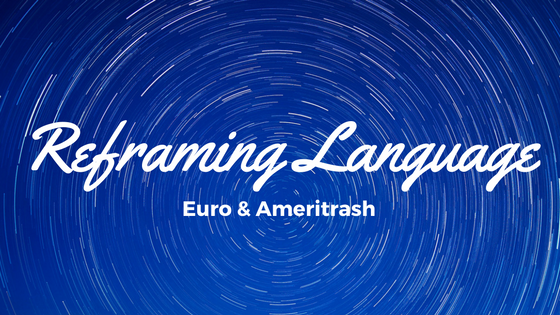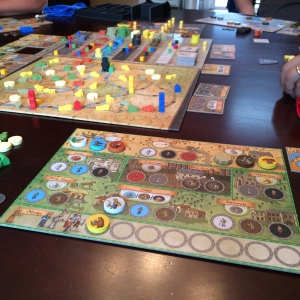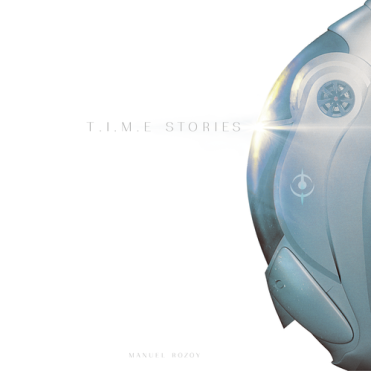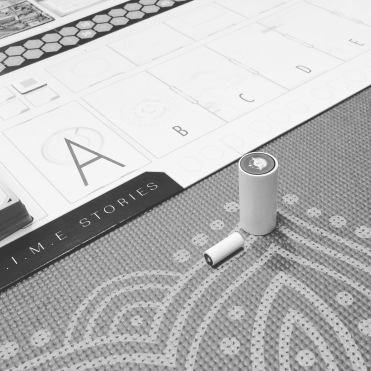
If you ask almost anyone in the board game hobby how many main types of games there are, they would most likely answer with two: Eurogames and Ameritrash games.
Eurogames
Originally termed as ‘German Games’ because of their origin in Germany, these games tend to focus heavily on strategy and/or tactics. There is little luck in these games and if there are card draws or dice rolling, there most likely a mechanism to mitigate the luck factor (such as drawing three cards and keeping one, or a special ability to add +1 to a die roll). Eurogames are generally a mechanics first approach, where the theme of a game does not matter as much. Themes chosen for these games sometimes have a real life system that game mechanics can be modeled off of – for example, Kanban: The Automotive Revolution was modeled after real life car manufacturing and distilled into a worker placement game. Even though the designer did that research, players still may feel disconnected from the theme or feel as if the theme was put on a game as an afterthought.

Orleans, an example of a Eurogame.
Ameritrash Games
A slightly derogatory term (recently taken back as Amerithrash), Ameritrash games generally focus on theme and story telling. In most cases, the production consists of stellar component quality and artwork, often providing players with plastic miniature figures to represent characters. Some games have one player as the game master or overlord, orchestrating a story for the rest of the players similar to a role-playing game. Players are presented with many decisions to make, but more often than not, conflict, battle, or tasks come down to rolling dice, adding a fair bit of luck into these games.
These rigid categories do not limit players. players can still story-tell while playing Eurogames or have great strategical choices in Ameritrash games. However, these are tendencies in the design process that are most often seen and the players who gravitate to a certain type of game is looking for that specific experience. There have been more recent “Eurotrash/Eurothrash” games, which take a blend of the two main categories, providing a thematic experience while keeping a heavy emphasis on strategy. Designer Eric Lang has been best known in the past couple of years for diving into this arena with games like Blood Rage. In these cases, I have seen less story driven play and more thematic components mixed with the traditional Eurogame strategy. The recent Above and Below by designer Ryan Laukat takes a worker placement mechanic and adds a choose-your-own-adventure storybook on top of it. While the two main genres of games have been mixing a bit in the past couple of years, there is still much territory to cover in providing a highly strategic and thematic experience.
Reframing and Why
With only two type of main game categories, there is not a lot of room for anything else, much like political parties in the United States. I know folks are going to read this and dismiss this as another cry for political correctness; however, language is important and language can be used to be exclusionary even when we do not intend it to be. Please, if you are feeling defensive or frustrated at this, before you comment, take a step back for a minute and keep an open mind as you continue to read.
Eurogame AND Ameritrash are both Western-centric terms, which centers the entire hobby in Western standards and values. I see board gaming (as a hobby) becoming more global. There was a board game convention this year in Nigeria and we are seeing more designers from east Asian countries becoming more prolific at conventions such as The Spiel in Essen. I can only assume that more game designers from countries in Africa, south and west Asia, and South/Central America will start to become more visible (yes, they exist now, but they remain invisible and unpublished). In each culture, there are different ways of knowing, learning, and playing. Keeping a rigid focus on what types of games are valuable in the world closes off space for unique designs that might fall outside of these terms. I know folks will say the hobby is always looking for new and innovative designs. But the unfortunate truth is that Western culture devalues other cultures and sometimes in very subtle ways. For example, calling innovative games from other cultures quirky delegitimizes their value against Western standards. Further, calling a game from a non-Erupean / United States country a Eurogame or an Ameritrash game feels wrong. What it does for me is gives all the credit to Western culture for creating board games and board game standards.
I have no illusions about this language going away any time soon. Every single board game content creator, designer, and publisher uses this type of language to describe games because… it is the common vernacular in the board game hobby in the present. In one word, a player can get a semi-accurate picture on what a game is about and whether or not they want to play it. As I have and will continue to say in the Reframing Language series, why can’t we call games for what they are and use intentional language? Using words like strategy and tactics is much more accessible to all people than the much more coded and nuanced Eurogame. Similarly, thematic or immersed in story provides me with a more accurate description than Ameritrash. Reframing our language can not only provide more accurate and accessible descriptions, but also decentralize western culture in board gaming. Yes, the main hobby has come out of and flourished in Europe and the United States; however, board and card games exist globally for hundreds and hundreds of years.


I had never heard the term ‘Ameritrash’ but it’s a very interesting difference from the european games like Risk, which I tend to hate playing. I think the language around these games is really important, especially when you want to open these games up to new people.
LikeLiked by 1 person
Posted by Ceillie Simkiss | October 12, 2016, 3:33 PMThank you for stopping by and reading. I find language fascinating and would love to look into more about the origin of these different words. I ind it interesting that ‘American style’ are often equated with no strategic thought or brainpower used.
LikeLiked by 1 person
Posted by Brendon | October 13, 2016, 12:50 PMRisk is generally considered an ameritrash. High Conflict, High Luck, High amount of plastic bits. I find in today’s gaming world that few games are exclusively “Ameritrash” or “Euro”. Games like Kemet which has dudes on a map like Risk but resource management and a deterministic (no random) battle system.
I would highly recommend checking out Geek And Sundry’s Table Top. They are a great way to step into what is modern board games. They focus on easier and more entertaining games to play.
If you don’t like Risk I would suggest more euro style games
some of the most popular entry level games in the euro genre are
Catan
Carcassonne
Ticket to ride
Some of the best easy party games right now are
Codenames
For sale
Sushi Go Party
Also popular today are Cooperative games
Mysterium
Pandemic
And if you want Ameritrash I’m a big fan of
Cosmic Encounter
T.I.M.E. Stories (mentioned above)
As far as the original article goes I agree with you that these terms no longer have positive value. In addition to the western centric issues you mention above I find that most games coming out today take influences from both ameritrash and euro games. Take Cyclades for example. You have dudes on a map and dice based combat (ameritrash) but you have resource management and auction (euro). Things no longer fit into these pretty boxes and that’s for the better. 20 years ago these were highly valuable terms. Not so much anymore.
LikeLike
Posted by Matt | October 14, 2016, 8:46 AM